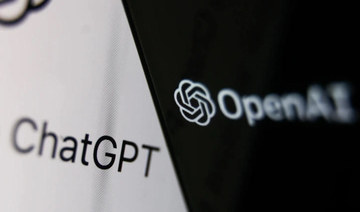LONDON: Artificial intelligence programs like ChatGPT should be trained with more high-quality Arabic content, Egyptian writer and entrepreneur Mo Gawdat said.
Speaking during the International Congress for Arabic Publishing and Creative Industries event in Abu Dhabi, Gawdat expressed concern about the scarcity of rich Arabic discourse online.
The author of “Solve for Happy: Engineer Your Path to Joy” and former chief business officer of Google X, the company’s experimental arm, argued that without deeper Arabic content, AI applications may struggle to provide valuable insights into the Arab world.
“A lot of megabytes of Arabic language online are very empty,” Gawdat explained. “The initial versions of AI will reflect whatever it is that we put out there.”
Even though he believes that future AI iterations will become smart enough to discern between “real information and fluff,” he said the lack of quality content should be tackled as soon as possible.
Gawdat called on Arabic content creators, publishers, and educational institutions to produce more insightful material for AI tools to analyze.
“The problem we are facing is that we are creating an impression that knowledge of the Arab world is shallow, in comparison to the incredible wisdom that is really coming from the region,” he said.
“We need to create content with depth and with more intellectual value.”
Gawdat added that as future AI systems increasingly rely on authoritative sources, educational institutions should make more Arabic research accessible online.
“With AI utilizing the Arabic content that we put in, it is our responsibility to put the right kind of content out there,” he emphasized.
“This will ultimately determine the quality of Arabic artificial intelligence-driven content.”

Gawdat compared this responsibility to parenting, describing the process as being aware of how children learn to interact with the world.
He also urged researchers and content creators to reconsider their strategies, as the ChatGPT-led revolution in information access and content creation has the potential to threaten human authors.
However, Gawdat also recognized the opportunities that AI brings.
“As an author, I have learned to no longer define myself as someone who is supposed to write words on paper,” he said.
“My job definition now is to provide interesting human perspectives and inspiration regarding certain topics.
“Through whatever knowledge is available to me and in whatever form, I am trying to find a way to connect with other humans and communicate what I believe needs to be communicated.”














